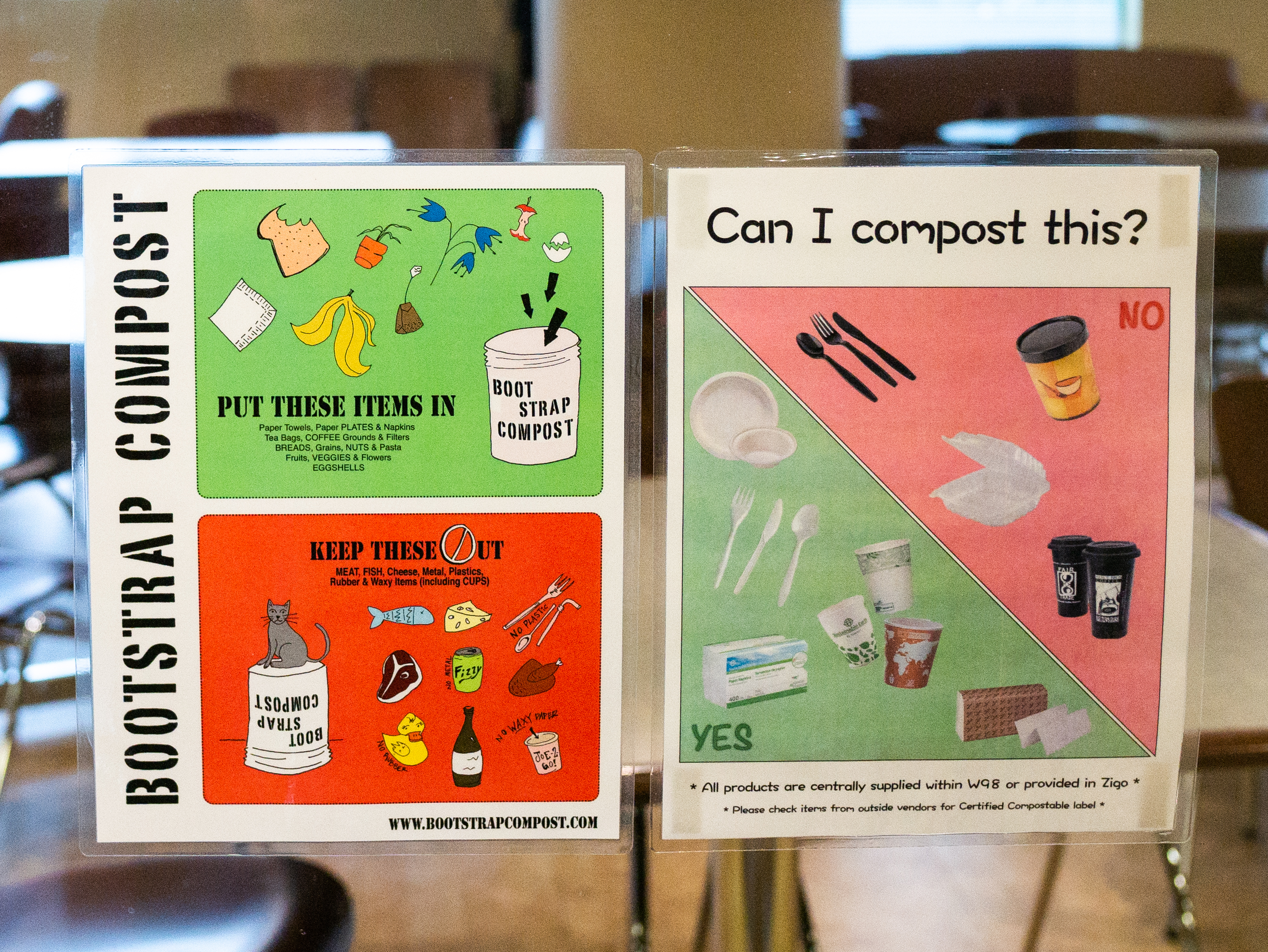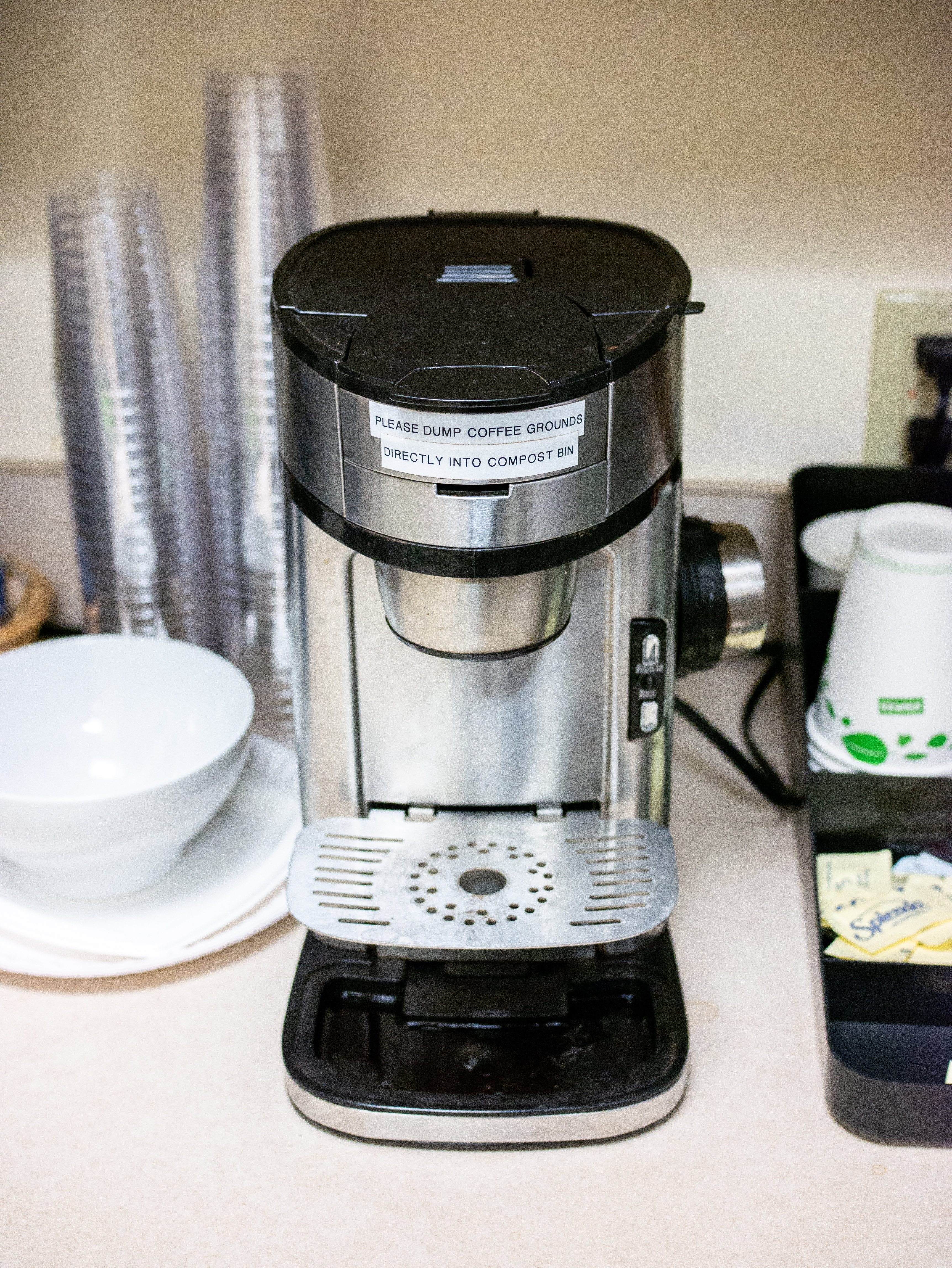
Towards a More Sustainable Workplace at MIT

W98 switches out coffee pods, collects compostables and more
Three years ago, when Stephanie Trembley began working at MIT’s Office of Resource Development and Alumni Association, she noticed that everybody was getting boxed lunches in the building and just throwing them out afterwards, regardless of whether the items left inside were recyclable or compostable. Her observations sparked a thought: “This is not okay.”
She wanted to make a change. Trembley explains, “I decided to reach out to people in the building who I thought had interest. I also sent a general email to the building, saw who was interested, and started a committee. And just kind of built it up from there.”
For a while, it was just her. But today, there’s a group of 25 people on the W98 green committee mailing list, of which there are around 10 active members who go to meetings and participate to help make the office more sustainable.
One of the working group’s first big initiatives was to implement food waste collection in the building. Trembley ended up reaching out to a vendor—Bootstrap Compost—to help implement the program. W98 now has their food scraps and compostable materials picked up twice a week on Wednesdays and Fridays.

Food waste signage
After tackling the food waste problem, the team decided to look into the issue of coffee, specifically to replace non-recyclable coffee pods with something more sustainable. They tried transitioning to a pod that was 97% compostable, but the pods had a plastic ring that could not be composted. As a result, many people either weren’t composting or they were doing it incorrectly by forgetting to take off the ring. Since the people in the building drink a lot of coffee, Trembley wanted to find a resolution. With some more research, she found a single-serve podless machine online that allows the user to place the grounds directly in the machine and then easily dump the grounds in the compost bin afterwards.

Podless coffee machine
The office now saves roughly 2,500 non-recyclable coffee pods and collects around 500 pounds of compostable food each month. It also composts 4,000 paper plates, 7,000 napkins and paper towels, 7,500 paper cups, and over 14,000 forks, knives, and spoons—all of which would have previously gone to the landfill. Recently, the W98 green team has also provided the building’s kitchen spaces with reusable plates, bowls, and silverware, which help reduce the disposal of single-use items.
However, as expected, change is not easy. There are always a few people who don’t like the change or need time to adjust their routines, as the green team has seen. Heather Charron, a member of the committee, explains that they “make it a point to not force anything on anyone.” Rather, they try to demonstrate that there are options available if people would like to practice sustainable habits.
The green team also provides opportunities for people to learn more about sustainability through activities like brown bag lunch lectures and a biannual reusable office supply exchange—ROSE, for short. Furthermore, they have a resource sheet that is sent out to new employees, which outlines sustainable practices specific to the building and the offices within it.
One of the committee’s main goals is to have people take home what they learn at work about sustainability. Even a little sign that reminds people to turn off the lights can make a difference because it could help make it a routine at work and home. The change can be slow, but the team has seen a positive response from employees and their impact is being noticed. Last year, Trembley received a 2017 MIT Excellence Award for her leadership of the green working group and her influence in creating a more sustainable office culture at MIT. The team hopes that their change may encourage the broader MIT community to take a look at their own office cultures and develop strategies that promote a sustainable transformation.
To find more ideas for making MIT workplaces more sustainable, take a look here.

